Omissions in Mathematics Education: Gauge Integration
The current (pure) mathematics curriculum at the university is well established. Most of the choices made are sensible. But still, there are some important topics that are usually not taught. Some of these topics are very obscure and not even very well known to many professional mathematicians, others are known to experts but for some reason are not touched upon in education. The goal of this blog series is to visit some of these omissions, explaining their basic theory, explaining why they should be taught, and finding out why they aren’t. Today’s topic is the gauge integral, also known as the Henstock-Kurzweil integral, the narrow Denjoy integral, the Luzin integral, or the Perron integral.
Every mathematics student is of course acquainted with the Riemann integral. The Riemann integral is defined for functions ##f:[a,b]\rightarrow \mathbb{R}##. The Riemann-integral of ##f## can be defined in essentially two ways. First, we have the Darboux method. The Darboux method involves bounding the “area” of ##f## by below and by above. Indeed, we exhibit some numbers ##X = \{x_0,x_1,…,x_n\}## with ##x_0= a##, ##x_n = b## and ##x_i\leq x_{i+1}##. Then we define
[tex]U_X(f) = \sum_{i=0}^{n-1} (x_{i+1} – x_i)\sup_{x\in [x_i,x_{i+1}]}f(x)[/tex]
and
[tex]L_X(f) = \sum_{i=0}^{n-1} (x_{i+1} – x_i)\inf_{x\in [x_i,x_{i+1}]}f(x)[/tex]

The Darboux integral can then be defined if ##U_X(f) – L_X(f) \rightarrow 0## if ##X## gets finer. The limit of ##U_X(f)## (and ##L_X(f)##) is then called the Darboux integral.
The second way of defining the Riemann integral involves again some numbers ##X = \{x_0,x_1,…,x_n\}## like above and also a set of points ##\{a_0,…,a_{n-1}## with ##x_i\leq a_i\leq x_{i+1}##. The Riemann integral of ##f## can then be defined as the limit of
[tex]\sum_{i=0}^{n-1} f(a_i)(x_{i+1} – x_i)[/tex]
as ##X## gets finer.
Both approaches are equivalent, and the result integral is denoted as ##\int_a^b f(x)dx##. For the equivalence of both approaches see Bloch https://www.amazon.com/Real-Numbers-Analysis/dp/0387721762
An extension of the Riemann integral can be achieved by extending the domain to intervals like ##[a,+\infty)##. Indeed, we can define
[tex]\int_a^{+\infty} f(x)dx = \lim_{d\rightarrow +\infty} \int_a^d f(x)dx[/tex]
Later in their courses, mathematics students replace the Riemann integral with the Lebesgue integral. The Lebesgue integral is defined not by splitting the domain into a partition, but rather splitting the codomain into a partition.

This results in a much more powerful integral. It is able to find the integral to many more functions, it satisfies many good properties which allow interchange of integral and limits, and the proofs involving Lebesgue integration are much less cumbersome. Only setting up the Lebesgue integral is very tedious.
But not all is perfect. While any Riemann integrable function ##f:[a,b]\rightarrow \mathbb{R}## is Lebesgue integrable, the same is not true for the extended Lebesgue integral. Indeed, the integral
[tex]\int_0^{+\infty}\frac{\sin(x)}{x}dx[/tex]
is not Lebesgue integrable, but the Riemann integral is ##\pi/2##. So the Lebesgue integral is at the same time more powerful, but also weaker than the Riemann integral.
This is solved by the gauge integral. The gauge integral is a very easy modification of the Riemann integral, but yields a very powerful integral which both encompasses the Riemann integral, the extended Riemann integral and the Lebesgue integral. Let us first revisit the formal definition of the Riemann integral. We say that the Riemann integral of ##f:[a,b]\rightarrow \mathbb{R}## is a number ##L## such that for all ##\varepsilon >0##, there exists a ##\delta>0## such that whenever ##x_0,…,x_n## and ##a_1,…,a_n## are numbers such that
[tex]a=x_0\leq a_1\leq x_1\leq a_2\leq …\leq x_{n-1}\leq a_n\leq x_n = x[/tex]
and ##x_i – x_{i-1}<\delta## for all ##i##, then
[tex]\left|L – \sum_{i=1}^n f(a_i)(x_i – x_{i-1})\right|<\varepsilon[/tex]
The gauge integral is the exact same definition except that we replace the number ##\delta## by a function ##\delta##. We get that the gauge integral of ##f:[a,b]\rightarrow \mathbb{R}## is a number ##L## such that for all ##\varepsilon >0##, there exists a function ##\delta:[a,b]\rightarrow (0,+\infty)## such that whenever ##x_0,…,x_n## and ##a_1,…,a_n## are numbers such that
[tex]a=x_0\leq a_1\leq x_1\leq a_2\leq …\leq x_{n-1}\leq a_n\leq x_n = x[/tex]
and ##x_i – x_{i-1}<\delta(a_i)## for all ##i##, then
[tex]\left|L – \sum_{i=1}^n f(a_i)(x_i – x_{i-1})\right|<\varepsilon[/tex]
Remark that similar definitions can be made that extend the domain ##[a,b]## to more general domains, but this is not pursued here.
The two definitions look similar, but there is a world of difference. The gauge integrals yield the most perfect possible integral for functions ##\mathbb{R}\rightarrow \mathbb{R}##. Let us find out why by exhibiting some selected results.
First, a function ##f## is Lebesgue integrable if and only if it is gauge integrable and ##\int |f|<+\infty##. So we retain the Lebesgue integral as a special case. Indeed, the Lebesgue integral is analogous to absolutely convergent series, while the gauge integral is analogous to the convergent series in general. Furthermore, integrals like ##\int_0^{+\infty}\frac{\sin(x)}{x}dx## that can not be found by Lebesgue, can be found by the gauge integral and yield sensible answers.
Second, many theorems in Lebesgue integration and Riemann integral are special cases of gauge integral theorems. Furthermore, the theorems often take on much more beautiful forms in the gauge integral setting. One example is the fundamental theorem of calculus. Indeed, the second part of the fundamental theorem of calculus is as follows: Let ##f## and ##F## be functions ##[a,b]\rightarrow \mathbb{R}## such that ##F## is continuous and ##F’ = f##. If ##f## is Riemann integrable, then
[tex]\int_a^b f(x)dx = F(b) – F(a)[/tex]
One of the main drawbacks of this theorem is the part “If ##f## is Riemann integrable”. Can’t we deduce Riemann integrability from the fact that it is a deriviative? It’s not possible. The gauge integral gives us a much much more general statement however (note that there are even more powerful forms): If ##F## and ##f## are functions ##[a,b]\rightarrow \mathbb{R}## such that ##F’ = f## for all points on ##[a,b]## except possibly countably many, then ##f## is gauge integrable and ##\int_a^b f(x)dx = F(b) – F(a)##.
Other classical theorems like limit theorems, substitution theorems, integration by parts theorems can all be generalized to hold in great generality.
So why should gauge integration receive more attention in undergrad education? First, the gauge integral is as easy to define as the Riemann integral and – with some experience – is definitely very intuitive. Second, we get a more general integral encompassing all kinds of integrals mathematicians will see eventually. In fact, using the gauge integral, it is actually possible to construct the Lebesgue integral as a special case. Third, we get a lot of general theorems which encompass both the Lebesgue as the Riemann cases. These theorems are the most general possible and are not as easily proved (if it is even possible) in the context of Lebesgue or Riemann integration.
So why isn’t the gauge integral taught? The gauge integral has one major drawback: it can only be defined for functions ##\mathbb{R}\rightarrow \mathbb{R}##, although modifications are found to extend it to multivariable domains ##\mathbb{R}^n##. The Lebesgue integral however accepts very very general domains. So the Lebesgue integral is still a fundamental part of knowledge even if the gauge integral is available on ##\mathbb{R}##. Furthermore, the greater generality of the gauge integral is almost never needed for practicing scientists (who have enough with the slightly more intuitive Riemann integral), but also not for practicing mathematicians who would exclusively use the Lebesgue integral.
Still, I would say that mathematics is a lot about finding the most beautiful and general statements for theorems. And for that reason alone, the gauge integral is an important omission in undergraduate education. What are your thoughts?
For people interested in learning the gauge integral, I can provide the following two references:
– Introduction to Real analysis by Swartz and Depree https://www.amazon.com/Introduction-Real-Analysis-John-DePree/dp/0471853917 This is a basic course on real analysis which uses the gauge integral. The covering of the gauge integral is rather superficial, however, but the most important results are there.
– A modern theory of integration by Bartle https://www.amazon.com/Modern-Integration-Graduate-Studies-Mathematics/dp/0821808451 This gives a very exhaustive treatment of the gauge integral. The entire book is dedicated to it, and the theory is explained in full detail. It contains everything you’ll ever want to know about this topic (and more!).
Advanced education and experience with mathematics

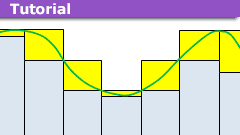
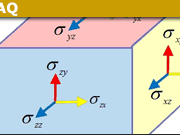
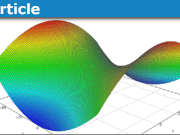


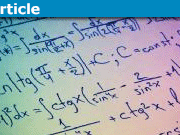
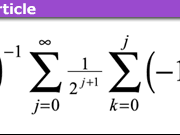
[QUOTE="disregardthat, post: 5561161, member: 49781"]Interesting. So do you as for improper Riemann integrals define for example the gauge integral ##int^{infty}_a f(x) dx## as the limit of the gauge integrals ##lim_{t to infty} int^t_a f(x) dx## (whenever the limit exists or is ##pm infty##) where ##f : [a, infty) to mathbb{R}## is gauge integrable on ##[a,t]## for all ##t geq a##? As far as I can see, you only gave a definition of a gauge integrable function on a closed interval.[/QUOTE]You do the exact same thing except (i) replace the reals ##mathbb{R}## with the extended reals and (ii) define the "length" of an unbounded interval (that's the ##x_{i}-x_{i-1}## factor in micromass's definition) as equal to zero. This forces the Riemann sum to be a finite number, and all the proofs can be used unchanged. See Robert McLeod (1980) The Generalized Riemann Integral for an overview.[QUOTE]Assuming the above, what's stopping us from simply defining ##int^{infty}_a f(x) dx## as the limit of the Lebesgue integrals ##lim_{t to infty} int^t_a f(x) dx## (whenever the limit exists or is ##pm infty##) for functions ##f : [a,infty) to infty## which are Lebesgue integrable on ##[a,t]## for all ##t geq a##? Using the same idea for all the different improper integrals would give us a notion of improper Lebesgue integrals, and improperly Lebesgue integrable functions.[/QUOTE]There is no such thing as "improper Lebesgue integral" because ##[a,infty)## is a measurable space. ##int_{[a,infty)} f , dmu##, where the right hand side is using the Lebesgue measure, is not improper. Note that ##int_0^infty frac{sin(x)}{x}, dx## is undefined as a Lebesgue integral (it becomes a ##infty-infty## situation), but exists as an improper Riemann integral, or as a gauge integral directly.Remember the reason why we care about Lebesgue at all is because of dominated convergence, but with Riemann we need uniform convergence.
Interesting. So do you as for improper Riemann integrals define for example the gauge integral ##int^{infty}_a f(x) dx## as the limit of the gauge integrals ##lim_{t to infty} int^t_a f(x) dx## (whenever the limit exists or is ##pm infty##) where ##f : [a, infty) to mathbb{R}## is gauge integrable on ##[a,t]## for all ##t geq a##? As far as I can see, you only gave a definition of a gauge integrable function on a closed interval.Assuming the above, what's stopping us from simply defining ##int^{infty}_a f(x) dx## as the limit of the Lebesgue integrals ##lim_{t to infty} int^t_a f(x) dx## (whenever the limit exists or is ##pm infty##) for functions ##f : [a,infty) to infty## which are Lebesgue integrable on ##[a,t]## for all ##t geq a##? Using the same idea for all the different improper integrals would give us a notion of improper Lebesgue integrals, and improperly Lebesgue integrable functions.It seems to me that perhaps the theorem you gave about the equivalence between Lebesgue integrable functions and gauge integrable functions such that ##int |f| < infty## implies that the definition above of a Lebesgue integrable function (proper and improper) is equivalent with the definition of a gauge integrable function.Maybe I'm wrong and missing something here. What exactly can gauge integration do which Lebesgue integration and improper Lebesgue integration like I defined above cannot?Also, what do you do about gauge integrals ##int_A f(x) dx## for arbitrary sets ##A##? For which sets and functions are such integrals defined?
Enlightening! I always thought of Lebesgue as Riemann with running over the null-sets :)
Liked your article too.
minor typo in the first paragraph look for integratal
The Insight article has nice pictures that give intuition about the Riemann integral and the Legesgue integral. Is there a useful picture that explains the gauge integral ?The arguments given in favor of the gauge integral focus on the nice implications it provides – if f is gauge integrable then ….. To use such implications in a specific setting, one would need to establish the "f is gauge integrable" clause. I don't get any intuitive understanding of how to do that, except in a trivial case where we can define [itex] delta(x) [/itex] to be a constant function, reverting it to the ordinary [itex] delta [/itex].For example, I gather that [itex] int_0 ^ {infty} frac{sin{x}}{x} [/itex] can be defined as an "extended" gauge integral in the usual way, by taking the limit of a gauge integrals over a finite intervals. So, technically, we need the existence of a different function [itex] delta(x) [/itex] for each of the finite intervals.Does the "gauge" in gauge integral has something to do with the concept of "gauge" in physics? (Unfortunately for me, the concept of a "gauge" in physics isn't very intuitive. There are explanations such ashttps://terrytao.wordpress.com/2008/09/27/what-is-a-gauge/ , but I need someone to explain the explanation!)
[QUOTE="micromass, post: 5527766, member: 205308"]How would "##|f|## is gauge integrable" imply "##f## is measurable"? From my posts follows only that ##|f|## is measurable.[/QUOTE]Ok; I see the subtle difference. Thus ''##f## is Lebesgue integrable iff ##f## and ##|f|## are gauge integrable".
How would "##|f|## is gauge integrable" imply "##f## is measurable"? From my posts follows only that ##|f|## is measurable.
[QUOTE="micromass, post: 5527754, member: 205308"]No, that would be incorrect. Can you show why you think your statement is true?[/QUOTE]Well if (i) Lebesgue integrable implies measurable and (ii) every gauge integrable function is measurable and (iii) ##f## is Lebesgue integrable iff ##f## is measurable and ##|f|## is gauge integrable" (three assertions taken from your posts) then my statement follows.
[QUOTE="A. Neumaier, post: 5527731, member: 293806"]Then the optimal statement should be ''##|f|## is gauge integrable iff ##f## is Lebesgue integrable'', shouldn't it?[/QUOTE]No, that would be incorrect. Can you show why you think your statement is true?
[QUOTE="micromass, post: 5527720, member: 205308"]No, every gauge integrable function is measurable.[/QUOTE]Then the optimal statement should be ''##|f|## is gauge integrable iff ##f## is Lebesgue integrable'', shouldn't it?
[QUOTE="A. Neumaier, post: 5527719, member: 293806"]OK, thanks. Are there nonmeasurable functions ##f## for which both ##f## and ##|f|## are gauge integrable? (assuming ZFC)[/QUOTE]No, every gauge integrable function is measurable.
[QUOTE="micromass, post: 5527718, member: 205308"]Lebesgue integrable implies measurable, so I don't know why you put in a condition "measurable and Lebesgue integrable".[/QUOTE] OK, thanks. Are there nonmeasurable functions ##f## for which both ##f## and ##|f|## are gauge integrable? (assuming ZFC)
[QUOTE="A. Neumaier, post: 5527717, member: 293806"]The two answers don't quite match. It seems to me that you wanted to say that ''##|f|## is gauge integrable iff ##f## is measurable and Lebesgue integrable''. Is this the correct assertion?[/QUOTE]Lebesgue integrable implies measurable, so I don't know why you put in a condition "measurable and Lebesgue integrable". So no, it is not the correct assertion. It is "##f## is Lebesgue integrable iff ##f## is measurable and ##|f|## is gauge integrable".
[QUOTE="micromass, post: 5527686, member: 205308"]Read the rest of the post for the exact statement that is true. It also says that the statement as posted is false.Yes.[/QUOTE]The two answers don't quite match. It seems to me that you wanted to say that ''##|f|## is gauge integrable iff ##f## is measurable and Lebesgue integrable''. Is this the correct assertion?
[QUOTE="A. Neumaier, post: 5527684, member: 293806"]What do you mean by ''essentially correct"? The question was a precise mathematical statement, so it is either known to be true or not known to be true.[/QUOTE]Read the rest of the post for the exact statement that is true. It also says that the statement as posted is false.[QUOTE]And is the inverse also true, is every Lebesgue integrable function also gauge integrable?[/QUOTE]Yes.
[QUOTE="micromass, post: 5527671, member: 205308"]That is essentially correct. We just want ##f## to be measurable/gauge integrable to exclude pathological cases having to do with nonmeasurable functions.[/QUOTE]What do you mean by ''essentially correct"? The question was a precise mathematical statement, so it is either known to be true or not known to be true. And is the inverse also true, is every Lebesgue integrable function also gauge integrable?
[QUOTE="wrobel, post: 5527653, member: 593228"]Thanks.So if ##|f|## is gauge integrable then ##f## it is Lebesgue integrable?[/QUOTE]That is essentially correct. We just want ##f## to be measurable/gauge integrable to exlcude pathological cases having to do with nonmeasurable functions.
Thanks.So if ##|f|## is gauge integrable then ##f## it is Lebesgue integrable?
[QUOTE="wrobel, post: 5527588, member: 593228"]Does the gauge integral allow to define spaces analogous to ##L^p##?[/QUOTE]The situation is the same as with convergent and absolutely convergent series. Absolutely convergent series allow us to define ##ell^p##. Convergent series is general do not. In the same way, the absolutely convergent integrals can be used to define ##L^p##. Note that ##|f|## is absolutely convergent iff ##f## is Lebesgue integral.[QUOTE]If the gauge integral ##int|f|=0## then what can we say about ##f##?[/QUOTE]We can say that ##f=0## a.e. just as with the Lebesgue integral.
Does the gauge integral allow to define spaces analogous to ##L^p##? If the gauge integral ##int|f|=0## then what can we say about ##f##?
Here is the theorem of differentiation under the integral sign for the gauge integral:Theorem: Let ##f:[a,b]times [c,d]rightarow mathbb{R}## (where ##b## can be infinity) such that for each ##tin [c,d]##, the function ##xrightarrow f(x,t)## is measurable on ##[a,b]##.Suppose that:1) There exists ##tin [c,d]## such ##xrightarrow f(x,t)## is gauge integrable.2) The partial derivative ##frac{partial f}{partial t}## exists on ##[a,b]times [c,d]##.3) There are gauge integrable functions ##alpha## and ##omega## such that[tex]alpha(x)leq frac{partial f}{partial t}(x,t)leq omega(x)[/tex]for all ##xin [c,d]## and ##tin [a,b]##.1) Then ##xrightarrow f(x,t)## is gauge integrable for each ##tin [c,d]##.2) The function ##xrightarrow frac{partial f}{partial t}## is guage integrable for each ##tin [c,d]##3) We have[tex]frac{d}{dt}int_a^b f(x,t)dx = int_a^b frac{partial f}{partial t}dx[/tex]In particular, if ##f(x,t) = e^{-tx}frac{sin(x)}{x}##, then this is clearly measurable in ##x## since it is continuous.Setting ##t=1## gives us ##e^{-x}frac{sin(x)}{x}## which is gauge integrable by the following theorem.Theorem: A measurable function ##g## is gauge integrable iff there are gauge integrable functions ##g_1##, ##g_2## such that ##g_1leq gleq g_2##.We have ##frac{partial f}{partial t} = -e^{-tx}sin(x)## exists on ##[0,+infty]times [varepsilon,1]## and is easily seen to be gauge integrable by using the above Theorem. So the theorem applies, at least for ##tin [varepsilon, 1]##. So for those ##t##, we can indeed et[tex]int_0^{+infty} e^{-tx}frac{sin(x)}{x}dx = frac{pi}{2} – text{arctan}(t)[/tex]Then we would need to switch limit and integral to conclude that ##int_0^{+infty}frac{sin(x)}{x}dx = frac{pi}{2}##. This is provided in the document I linked.
[QUOTE="A. Neumaier, post: 5527436, member: 293806"]The main reason why the standard courses about integration treat the Lebesgue integral rather than the Henstock integral is that the former has much stronger properties required in all applications to measure theory and functional analysis.One cannot do most of modern mathematics without the Lebesgue integral, while one can do most of it without the Henstock integral. Being maximally general is simply something very different from being maximally useful.[/QUOTE]Almost all of the theorems of Lebesgue integration also hold for the gauge integral. This includes stuff like dominated convergence and integration under the integral sign.[QUOTE="A. Neumaier, post: 5527437, member: 293806"]The justification must be based on proven properties of the integral. Are these properties satisfied for the Lebesgue integral? For the Henstock integral?[/QUOTE]Yes, they are.[QUOTE="strangerep, post: 5527446, member: 70760"]Oh, ok. (I knew about DUI already, of course, but hadn't seen it applied to sin(x)/x.) In any case, I now realize I misinterpreted your article. I was replying to your statement:but forgot that you had said earlier that it's Riemann-integrable.DUI tends to be used quite freely in theoretical physics, so it would be useful to know if there's any easy ways to tell where it doesn't work. Perhaps a subject for another insights article? :oldbiggrin:[/QUOTE]That's a good idea!
[QUOTE="A. Neumaier, post: 5527437, member: 293806"]This is a heuristic recipe that requires justification. Why is one allowed to do that in this particular case? Surely there are conditions on the integrand needed to make it work as it is known yhat the trick may fail to give the correct answer.The justification must be based on proven properties of the integral. Are these properties satisfied for the Lebesgue integral? For the Henstock integral?[/QUOTE]From Necessary and Sufficient Conditions for Differentiating Under the Integral Sign by Erik TalvilaTheorem Let ##f:[alpha,beta] times [a,b] to mathbb{R}##. Suppose that ##f(cdot, y)## is ##ACG_*## on ##[alpha, beta]## for almost all ##y in (a,b)##. Then ##F:= int_a^b f(cdot,y) , dy## is ##ACG_*## on ##[alpha,beta]## and ##F'(x) = int_a^b f_1(x,y) , dy## for almost all ##x in (alpha,beta)## if and only if##int_{x=s}^{t} int_{y=a}^b f_1 (x,y) dy dx = int_{y=a}^{b} int_{x=s}^t f_1(x,y) dx dy## for all ##[s,t]subset [alpha,beta]##.Recall, a function is said to be absolutely continuous in the restricted sense on ##Esubset [a,b]## (##AC_*##) if for all ##epsilon > 0## there exists ##delta > 0## such that ##Sigma_{i=1}^{N} sup_{x,y in [x_i, y_i]} | F(x) – F(y)| < epsilon## for all finite sets of disjoint open intervals with endpoints in E and ##Sigma_{i=1}^N (y_i-x_i) < delta##.A function is said to be generalised absolutely continuous in the restricted sense on E (##ACG_*##) if it is continuous and E is a countable union of sets on which it is ##AC_*##
[QUOTE="A. Neumaier, post: 5527437, member: 293806"]This is a heuristic recipe that requires justification. Why is one allowed to do that in this particular case? Surely there are conditions on the integrand needed to make it work as it is known yhat the trick may fail to give the correct answer.The justification must be based on proven properties of the integral. Are these properties satisfied for the Lebesgue integral? For the Henstock integral?[/QUOTE]From Necessary and Sufficient Conditions for Differentiating Under the Integral Sign by Erik TalvilaTheorem Let ##f:[alpha,beta] times [a,b] to mathbb{R}##. Suppose that ##f(cdot, y)## is ##ACG_*## on ##[alpha, beta]## for almost all ##y in (a,b)##. Then ##F:= int_a^b f(cdot,y) , dy## is ##ACG_*## on ##[alpha,beta]## and ##F'(x) = int_a^b f_1(x,y) , dy## for almost all ##x in (alpha,beta)## if and only if##int_{x=s}^{t} int_{y=a}^b f_1 (x,y) dy dx = int_{y=a}^{b} int_{x=s}^t f_1(x,y) dx dy## for all ##[s,t]subset [alpha,beta]##.Recall, a function is said to be absolutely continuous in the restricted sense on ##Esubset [a,b]## (##AC_*##) if for all ##epsilon > 0## there exists ##delta > 0## such that ##Sigma_{i=1}^{N} sup_{x,y in [x_i, y_i]} | F(x) – F(y)| < epsilon## for all finite sets of disjoint open intervals with endpoints in E and ##Sigma_{i=1}^N (y_i-x_i) < delta##.A function is said to be generalised absolutely continuous in the restricted sense on E (##ACG_*##) if it is continuous and E is a countable union of sets on which it is ##AC_*##
[QUOTE="micromass, post: 5526994, member: 205308"]One approach is to differentiate under the integral sign. […][/quote] Oh, ok. (I knew about DUI already, of course, but hadn't seen it applied to sin(x)/x.) In any case, I now realize I misinterpreted your article. I was replying to your statement:[quote=micromass]Furthermore, integrals like ##int_0^infty sin(x)/x ; dx## that can not be found by Lebesgue, can be found by the gauge integral and yield sensible answers[/quote]but forgot that you had said earlier that it's Riemann-integrable.DUI tends to be used quite freely in theoretical physics, so it would be useful to know if there's any easy ways to tell where it doesn't work. Perhaps a subject for another insights article? :oldbiggrin:
[QUOTE="micromass, post: 5526994, member: 205308"]to differentiate under the integral sign[/QUOTE]This is a heuristic recipe that requires justification. Why is one allowed to do that? The justification must be based on proven properties of the integral. Are these properties satisfied for the Lebesgue integral? For the Henstock integral?
The main reason why the standard courses about integration treat the Lebesgue integral rather than the Henstock integral is that the former has much stronger properties required in all applications to measure theory. One cannot do most of modern mathematics without the Lebesgue integral, while one can do most of it without the Henstock integral. being maximally general is simply something very different from being maximally useful.
[QUOTE="strangerep, post: 5526850, member: 70760"][USER=205308]@micromass[/USER]: Coincidentally, I recently read a bit about the "Henstock–Kurzweil" integral, which I understand is the same thing as the Gauge Integral? (Btw, is there any reason you didn't mention that name?)[/QUOTE]Yes, it is the same thing. I'll add the various names to the article. Thanks[QUOTE]Regarding the integral $$int_0^infty frac{sin(x)}{x}, dx ~~,$$I've only ever seen that performed by contour integration (i.e., interpreted as a Cauchy PV integral). How is it done by Gauge Integration? (Maybe you could post an online link to the details?)[/QUOTE]One approach is to differentiate under the integral sign. Consider ##F(t) = int_0^{+infty} e^{-tx}frac{sin(x)}{x}dx##. Then [tex]F'(t) = -int_0^{+infty} e^{-tx} sin(x)dx = -frac{1}{1+t^2}[/tex]So ##F(t) = frac{pi}{2} – text{arctan}(t)##. Letting ##trightarrow 0## gives us the value of ##pi/2##.Here you can find more details: http://www.math.uconn.edu/~kconrad/blurbs/analysis/diffunderint.pdf This document doesn't deal with the gauge integral, but everything in the document applies to that setting as well.[QUOTE]And speaking of contour integration, one thing I like about Cauchy PV integrals is their relationship to Lebesgue integrals. But I get the impression from your article that one cannot in general achieve such a close relationship with Gauge Integrals, since the domain is ##mathbb C##, not ##mathbb{R}## ?[/QUOTE]Right. It is possible though to define the gauge integral on ##mathbb{C}##, but this is technical. In any case, it's not something I've looked into.
[USER=205308]@micromass[/USER]: Coincidentally, I recently read a bit about the "Henstock–Kurzweil" integral, which I understand is the same thing as the Gauge Integral? (Btw, is there any reason you didn't mention that name?)Regarding the integral $$int_0^infty frac{sin(x)}{x}, dx ~~,$$I've only ever seen that performed by contour integration. How is done by Gauge Integration? (Maybe you could post an online link to the details?)And speaking of contour integration, one thing I like about Cauchy PV integrals is their relationship to Lebesgue integrals. But I get the impression from your article that one cannot in general achieve such a close relationship with Gauge Integrals, since the domain is ##mathbb C##, not ##mathbb{R}## ?
Enlightening! I always thought of Lebesgue as Riemann with running over the null-sets. This article cleared this wrong view.